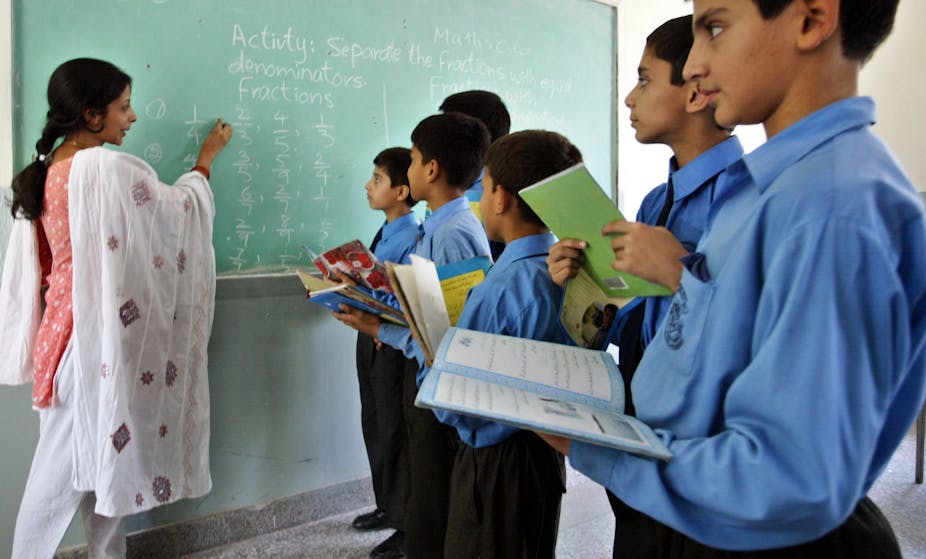What would you do with $1m? One lucky teacher may have to start thinking. Entries are now open for a new $1m Global Teacher Prize, launched by the Varkey GEMS Foundation, the philanthropic arm of the Dubai-based private education provider, at the Global Education and Skills Forum.
The award – touted by its organisers as a “Nobel Prize” for teaching – will be given in November 2014 to a single teacher, from any country in the world, who has “achieved exceptional results” and “won the respect of the community”. They also need to have “provided a role model”, “encouraged others to join the profession”, “opened up access to quality education for all” and “prepared young people to be global citizens”.
The money will come in instalments over a decade, and there is one condition: that the teacher has to remain a teacher for at least five years.
What are your initial reactions if you’re a teacher? Was it: “Wow $1,000,000. That’s a heck of a list, I don’t stand a chance of qualifying. Only one teacher? From the whole world? Who is going to do the judging – and how on earth are they to make a reasoned choice?”
I expect thoughts similar to those will go through the heads of many teachers. But there is a different question to consider on whether this will help raise the profile of a much-hounded profession.
Status of teaching
As part of the background information to the announcement we are told that “only in China” were teachers viewed as having the same status as doctors.
In several countries – much of Europe, Japan and Brazil or example – a sizeable proportion of parents would not encourage their children to enter the teaching profession. This information is not new and is largely accepted: in many countries there is a poor and often declining view of the status of teachers in society.
The question now is how well this enormous prize is likely to change the opinion in several societies, particularly if there is only to be one prize across the whole world.
One prize means only one country wins. The media are likely to ask the question “what is wrong with all the rest?” It could easily play to the negative.
Entry will be by personal recommendation by a sponsoring individual, or teachers can also apply themselves. So there is a golden opportunity for campaigning or management by governments or professional groups who may be keen to get a brief spotlight on the world stage.
It could just be an opportunity for a media hyperactivity and over-excitement. Although it may improve the lives of a few individuals, it seems unlikely that it will change the way people think about teachers. After all the Booker Prize and Oscars help sales figures for some specific books and movies – but do they really increase the number of readers and regular film goers?
Change of this sort is not done by imposition from outside – it needs to happen at all levels, and all the time.
In England, for example there has been a “discourse of derision” for many years aimed at teachers –- more or less since schools and education became a political topic in 1988. Nearly 25 years of belittling commentary, often echoed by some newspapers, is enough to depress anybody – up to and including a whole profession. Teachers are taking strike action at the moment angry at working conditions, pay and pensions.
So, let us all celebrate the complex, challenging, stressful (but never boring) profession of teaching. Teachers used to be thought of as “public servants”. Perhaps it is time to return to that concept of serving society –- for this is what we do – keeping it ready, willing and able to face the future.
Teachers should not just be thought of as entrants in some giant lottery which any single person, as an individual, has a vanishingly small chance of winning. Rather, all those individuals need to be allowed to do the difficult task they do, the space to do it in and the time to do it well.
Is $1m per year going to be more effective spent all in one place or spread about a bit? I think the latter.

